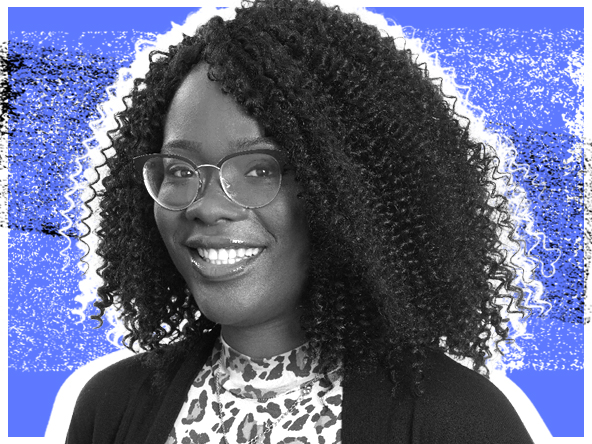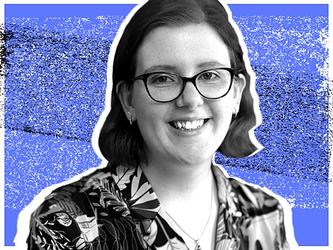Next generation chat with Truth’s Taiye Akin-Akinyosoye: ‘This is where I'm supposed to be’

What does an average day look like for you?
It can be varied, but a typical day involves managing the day-to-day of a project, writing proposals, preparing debriefs, and working on developing and acquiring new skills. It can be quite different, especially in our agency, but I would say that in an average day it is more about making sure our projects are taken care of, on time and being delivered with the high-quality standards we typically deliver. I make sure everything runs smoothly, essentially.
How do you maintain a good work-life balance in your role?
With a job like ours, especially as a qualitative researcher, it’s not like every day my day is balanced, as some days I might have evening research, and you might need to take some more time out of your personal life to do things like that. I also have two children at home. I am still working on it.
In my personal life, I get help – I have a beautiful family with me that make sure that where I’m failing, they’re picking things up. At work, I have wonderful teammates who are ensuring that if I’m having some issues or there’s something going on I can’t really mitigate, they’re on hand to pick things up. While my work-life balance is not quite there yet, I have great support on both sides to make sure it is not as intense as it could be.
How does your home life inspire your work?
I am a mother to two neurodiverse children, and so my biggest thing is making sure their voices are heard. I think that comes into my work and in everything I do: I make sure that participants’ and people’s voices are front and centre in everything we do.
We [researchers] are the impartial, unbiased people who can bring that [consumer opinions] to life in such an insightful way. My children are not very verbal, so I am normally the voice for them, and so that brings itself into my workspace.
How did you navigate entering the research industry in a later stage of your career?
I am one of those people who would say that market research came to me, rather than I came to market research. But I am very privileged to do something that I love and I am grateful to have found a career here. My degree was in humanities – media and communications – and I did a Master’s in media and communications as well, so this is something I was already doing in terms of research, understanding people and understanding society.
Research was where I wanted to be, but I think this is one of the things we keep talking about in terms of highlighting research and market research to students. I don’t think commercial research is something that is very well known, especially when you are a young person. Looking for somewhere where I could use my credentials and qualifications was interesting.
I was a much older person applying for entry level roles – I was a stay-at home mum for quite a while, and I did social media management a lot and worked in customer service, but I wanted to do something that was related to what I did at university. I probably wouldn’t think of doing anything else, to be honest – I feel like this is where I am supposed to be.
What three words would you use to describe yourself?
I would say I am hardworking and a team player. Even at home, making sure everyone is aligned, working as a team and supporting each other is really important to me – to be a support system.
What would you tell your younger self?
You are smarter than you think you are. Be more confident, work harder and it is all going to pay off.
How do you feel about AI in the research industry?
I think when AI is used appropriately, AI is very beneficial for our industry, from being able to handle minute workloads, logistics and emails to being able to collate all the information we get from our participants so we can view actual insights. Those are little things that would allow us to focus on the crux of what it is that we do, which is to bring incredible insights to our clients.
Is the sector at a turning point?
Yes and no. Yes, because clients’ needs are changing and evolving, and the way we work is evolving. We have gone from being face-to-face all the time to working online with our participants and not doing as much face-to-face as before.
We are very much needed – we are the bridge between the customer and the client. We are the impartial voice. AI can’t take that away – human-ness is needed within our sector. That’s the reason research is needed – so clients can understand their customers more. While we are changing, the way we work is changing and the things around us are changing, the core of what we do isn’t.
Is there a piece of advice you’d share with those looking to break into research?
Do a lot of research on market research. I talk about this as someone who didn’t know a lot about market research before I joined the industry. Even when I explain what I do, people don’t understand what it is.
There’s so many things to learn – frameworks, methodologies and different ways of working – and I think having some insight into that world is so invaluable, as when you are coming in, it doesn’t feel like you’re being punched in the face.
Ask as many questions as you can – there are no right or wrong questions. Just ask the questions you feel are needed to get the knowledge you need. Don’t be scared to get stuck in – it is work, but it is incredible in the insights you get out of it. The feeling of self-accomplishment you get from working on a project is something I enjoy.
What advice would you offer those at a later stage of their career?
People often want to keep things the way they are as it makes them feel comfortable. I think at the moment there is a lot of comfort and inertia within market research, and a resistance to trying new things and working in different patterns. Learn to adapt.
Also, teach. We are all busy – market research is a fast-paced industry – but I think every single person would do well to have even one session of teaching people what they know, what they do and how they do it. It is incredibly valuable to the people coming in to hear your thoughts and what you have understood about the industry.
But also learn from others and the younger ones, and remember you were once a young researcher yourself. While we are new, young and wanting to change the world, you are already changing the world, so learning new things would make sure that ability to change the world strengthens.

We hope you enjoyed this article.
Research Live is published by MRS.
The Market Research Society (MRS) exists to promote and protect the research sector, showcasing how research delivers impact for businesses and government.
Members of MRS enjoy many benefits including tailoured policy guidance, discounts on training and conferences, and access to member-only content.
For example, there's an archive of winning case studies from over a decade of MRS Awards.
Find out more about the benefits of joining MRS here.












0 Comments